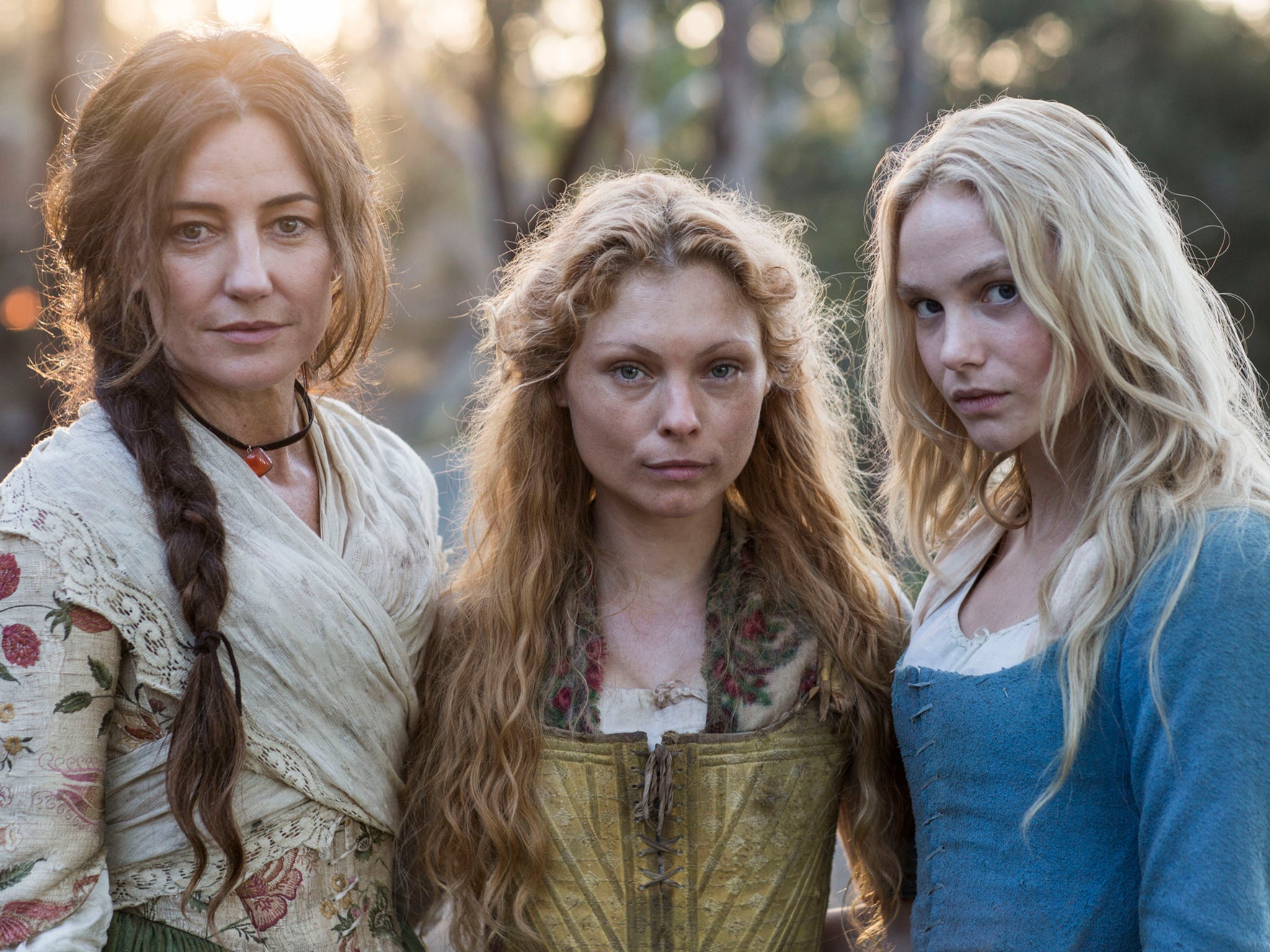Banished, review: Jimmy McGovern’s drama is struggling to break off the shackles
Episode 2: Despite the gritty setting, Banished is as oppy as a soap opera

It’s all about the 1780s at the BBC as new period dramas Poldark and Banished barrel across our screens with their funny trousers, three cornered hats and overuse of the word ‘godforsaken’.
One can imagine the delight in the Beeb’s costume department as they realised they’d be able to take the afternoon off. However Jimmy McGovern’s new drama, set in a scorching untamed New South Wales, is struggling to break off the shackles.
Tonight’s second episode continued the opener’s theme of nasty soldiers oppressing decent, honest, unbelievably attractive convicts, and indulged in some grade A soppiness as McGovern reminded us repeatedly that the convicts were real people too, as if we had assumed they were all knuckle-dragging ogres. Despite its gritty setting Banished is occasionally so fluffy and soap-y that it comes across as the Neighbours origin story, or a weird Home & Away reboot.
This week in the penal colony James Freeman (Russell Tovey, enjoying himself as a charming rascal) was still weak with hunger as the bullying Marston (Rory McCann, known to most as Game of Thrones’ ‘The Hound’) was keeping him on a strict diet of absolutely nothing. Freeman decided upon murder. The tart with the biggest of hearts Elizabeth Quinn (MyAnna Buring) decided to try and head off any such drama by offering Marston a quickie if he stopped nabbing Freeman’s rations (is she going to solve a problem each week via this method?). Marston smelt a rat and impolitely declined.
In the end goody-two-shoes Tommy Barrett did him in for said impoliteness to his wife and Marston ended up as shark food. Julian Rhind-Tutt’s Tommy is a microcosm of what makes Banished slightly frustrating at times. His character is so intensely decent that even the Reverend Johnson (Ewen Bremner) is comparing him to Jesus and, in the face of the boo-hiss soldiers, it’s a little wearying. Rhind-Tutt is a fine actor and hopefully the series will afford him a bit of light and shade as it progresses.
Elsewhere love’s young dream was being shattered as the callous Major Ross (Joseph Millson) demanded that Private Macdonald (Ryan Corr) share his ‘whore’ with him. MacDonald was loathe to allow the Major to get his greasy paws on the rhyming Kitty McVitie (Joanne Vanderham) and watching the young couple wrestle with the dilemma – if they disobeyed, MacDonald could be court-martialled – was genuinely affecting. The whole episode even managed to throw a little light on the otherwise thoroughly unpleasant Ross – what’s happening behind his spiteful façade?
The real guts of the series so far was located right towards the end of the episode, as Governor Phillip (David Wenham) informed the convicts that rations would be cut again. Anticipating a riot, Phillip delivered a rousing speech, proclaiming that ‘this is the birth of a nation’. Wenham’s moral Governor has been lumbered with England’s ‘scum’ and he knows there’s no going back for any of them. ‘England does not give a damn’ he had earlier told his housekeeper. Goodbye England, hello Australia.
Join our commenting forum
Join thought-provoking conversations, follow other Independent readers and see their replies
Comments